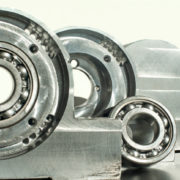Engage Partner to Make Cleaning Part of Medical Device Offering
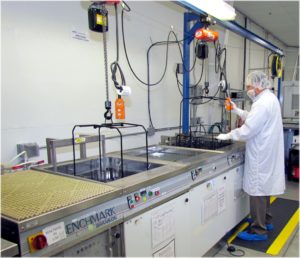 In our previous post we discussed the serious, even catastrophic consequences contamination can cause. Medical device manufacturers –from small machine shops to large corporations – need to establish protocols that enable them to consistently deliver clean components and meet regulatory standards.
In our previous post we discussed the serious, even catastrophic consequences contamination can cause. Medical device manufacturers –from small machine shops to large corporations – need to establish protocols that enable them to consistently deliver clean components and meet regulatory standards.
According to the Institute of Validation Technology, the FDA, in its Quality System Regulations, states that each manufacturer must “establish and maintain procedures to prevent contamination of product by substances that could be expected to have an adverse effect on product quality.”
The FDA also requires medical device manufacturers to establish “documented cleanliness requirements.”
Beyond Your Core Competencies?
If you are like many precision manufacturers, you have deep expertise in producing machined and/or plastic molded parts to strict tolerances. However, cleaning those parts and documenting your decontamination procedures may be outside your core competencies. For that reason, many device manufacturers turn to specialty partners like PTI Industries for their cleaning and validation. Doing so enables manufacturers to meet industry requirements while eliminating costly equipment purchases, staff training, and numerous certification requirements.
With PTI Industries, you produce your parts, we clean and test* them, and then you take care of packaging and distribution. Together, we get your products to market quicker while allowing you to save time and money.
*Note: PTI does not test for Endotoxin
Specialized Services for the Medical Industry
PTI Industries offers several special cleaning and testing processes for the medical device industry, including:
Precision Cleaning and Cleanliness Testing: Ensures you have a documented and repeatable cleaning process to deliver results that exceed industry standards. Trained experts help to determine which precision cleaning process will produce the best outcomes, based on your components.
Passivation: Stainless steel is naturally corrosion-resistant; however, it becomes contaminated when subsequent forming and machining operations are performed that introduce free iron particles and other surface contaminants. Passivation treats stainless steel with a mild oxidant, such as citric acid solution, to remove surface contamination and enhance the spontaneous formation of a protective passive film on the steel’s surface.
Non-Destructive Testing: With the increasing demand for parts made to stricter tolerances, the use of non-destructive testing has become an integral part of the manufacturing process. Non-destructive testing confirms that parts have been produced without defects and ensures they will perform as expected.
Save time and eliminate potentially damaging results by outsourcing your precision cleaning and testing to PTI Industries. Together, we can determine solutions to help ensure the success of your medical device manufacturing process.

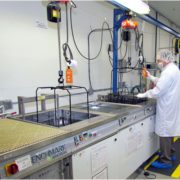
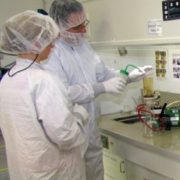
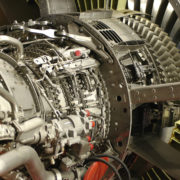
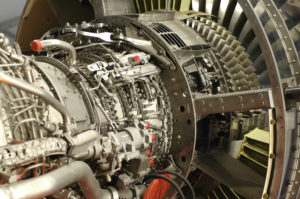 PTI Industries continues to offer special processes for critical aerospace components, helping the aerospace industry meet an increased demand while adhering to stringent quality standards. Strict adherence to NADCAP, FAA, and EASA certifications and accreditations ensures your parts performance, reliability, and safety.
PTI Industries continues to offer special processes for critical aerospace components, helping the aerospace industry meet an increased demand while adhering to stringent quality standards. Strict adherence to NADCAP, FAA, and EASA certifications and accreditations ensures your parts performance, reliability, and safety.